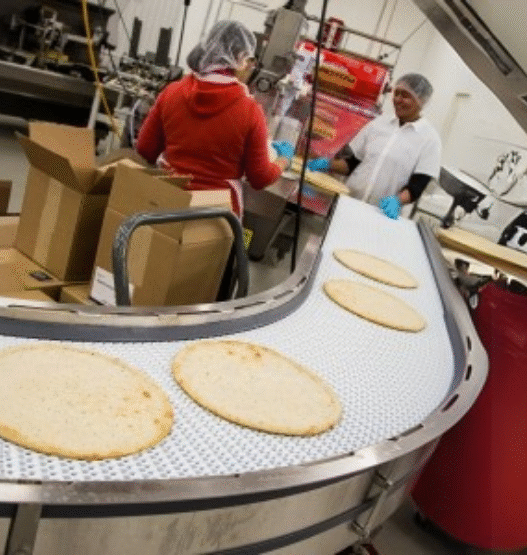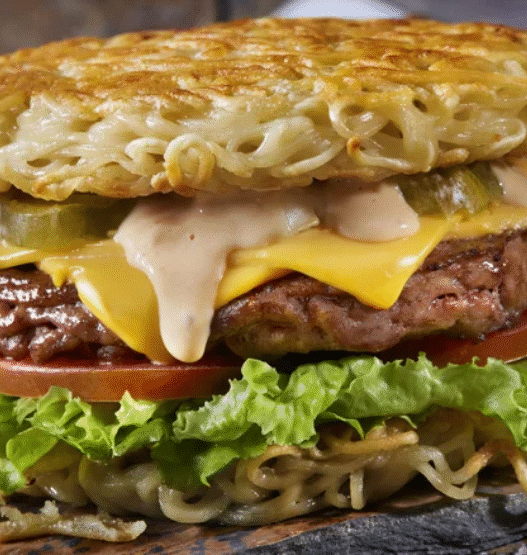This article was inspired by content originally published on CBS News by Kerry Breen
In October 2024, Famous Yeti’s Pizza in Stoughton, Wisconsin faced a public health alert after serving pizzas unintentionally made with THC-infused oil sourced from a shared kitchen. Between October 22–24, a cook mistakenly used Delta‑9 THC oil believed to be canola oil while preparing dough for pizza, garlic bread, cheese bread, and sandwiches.
Out of 107 diners surveyed, 85 reported symptoms such as dizziness, anxiety, nausea, hallucinations, and tachycardia effects typically seen in cannabis edibles. Some were hospitalized, and many experienced disorienting short-term memory loss. Although marijuana is illegal in Wisconsin, hemp-derived Delta-9 products are legally accessible, complicating the situation.
The restaurant closed temporarily, cooperated with health officials, and reopened after protocols were tightened. No charges were filed since the event was deemed unintentional.
🧠 Lessons for Our Pizza-Obsessed Audience
This incident may seem extreme, but it offers vital insights for three key reader groups: Pizza Enthusiasts, Shop Owners, and Industry Suppliers.
🍕 For Pizza Enthusiasts: Trust, Transparency & At-Home Ethics
Food History Meets Consumer Awareness
- Pizza History Facts take a modern turn when unexpected contaminants enter the supply chain. In this case, an artisan pizzeria’s reputation intersected with cannabis law complexities.
- When ordering signature pies, consumers now expect ingredient stories down to the cooking oil origin.
Home Pizza Safety Pro Tips:
- Use clearly labeled, single-use containers for all oils even separate drawers or locked storage.
- Keep a dedicated “pizza-only” oil bottle where mixing is impossible.
- Regularly audit kitchen stocks and signage to avoid hazardous substitution.
Essential Tools & Resources:
- Ready to craft pizza with care at home? Grab the Best Pizza Stone for Crispy Crusts or a high-quality oil dispenser with secure labeling. Ensure your tools are as intentional as your ingredients not accidental.
🏪 For Pizza Shop Owners: Operational Integrity is Non-Negotiable
Establishing Risk-Proof Food Safety Practices:
- Shared kitchens can be cost-effective but without strict separation, they’re a serious risk. Ensure every team member distinguishes between THC and cooking oils.
- Implement cross-functional training and enforce supply chain transparency, especially when using third-party edibles vendors nearby.
Branding, Transparency & Crisis Response:
- Honesty matters: Yeti’s quickly admitted the mistake and launched corrective procedures. Their transparency helped preserve customer trust.
- Maintain standard operating procedures, label all containers, and track ingredient provenance digitally if possible.
- Integrate a Pizza POS system that tracks batches and timestamps making traceability fast and clean.
Real Risk Management:
- If an incident requires immediate closure, swift communication—via signage, social media, email—can help stem panic and preserve trust.
🧂 For Pizza Suppliers & Industry Professionals: Safety in Supply & Innovation
Bulk Ingredient Vigilance:
- When supplying specialty oils, flour, or fermented condiments, QC (quality control) is essential. Sustainable pizza sourcing and labeling practices should be transparent and traceable.
- Partner with suppliers who provide batch-tested oils and ingredient logs.
Tech Trends for Ingredient Security:
- Food service technology pizza integrations like kitchen display systems or vendor-tracking software can safeguard against cross-contamination.
- Offer systems that flag products with allergen or legal implications during inventory audits (e.g. Delta‑9 THC content).
Growth Opportunity:
- Stadium pizzerias or ghost kitchens in mixed-use spaces may demand secure bulk ingredient services that guarantee separation from any hemp-derived products.
🧠 Pizza Expert Perspective
Pizza Expert “Chef Carla Rossi” (hypothetical) offers a professional view:
“This incident underscores the fragile line between artisanal authenticity and safety protocols. Even the smallest ingredient swap can become a crisis. To avoid that, pizzerias should document every oil container and run monthly safety drills.”
Pizza Pro Tip:
- Label all oils with bold, color-coded tags (e.g. “FOOD OIL” vs. “NON‑FOOD INFUSION”).
- Keep THC products in separate, locked storage from food prep zones.
📈 Trend Insights & Industry Context
- Consumer trust now hinges on supply-chain transparency. Incidents like Yeti’s can erode confidence in all small-format pizzerias.
- Regulations around hemp-derived THC vary by state, yet packaged consumables can cross paths with everyday ingredients especially in shared kitchens.
- The pizza industry is poised for tighter ingredient audits and digital traceability systems, especially in mixed-use properties or urban food halls.
✅ Action Guide: Ensuring Safe, Trustworthy Pizza
Operational Checklist:
- Label clearly: Every oil and ingredient container gets bold markings.
- Train staff: All team members understand what distinguishes edible oils especially if THC products are onsite.
- Separate storage: Use dedicated shelving or locked compartments for non-food items.
- Audit regularly: Monthly inspections and ingredient reconciliations.
- Use tech: Implement a kitchen display or food safety app that flags potential contaminant mishaps.
🔍 Why This Story Matters
- Even a beloved, artisanal pizzeria like Famous Yeti’s can face serious fallout from one simple mix-up.
- For enthusiasts quality and safety go hand in hand.
- For shop owners operational discipline is as important as dough hydration.
- For suppliers sourcing integrity isn’t optional when building trust in today’s pizza marketplace.
Affiliate Disclosure
This article contains affiliate links, which means Pizza Weekly may earn a commission if you make a purchase through them, at no extra cost to you. We only recommend products and services we genuinely believe in.






















